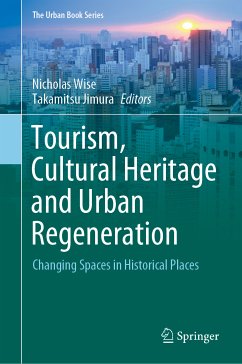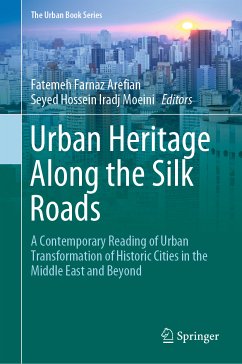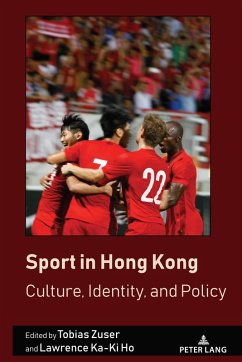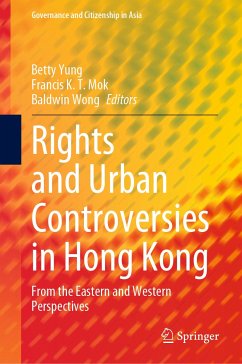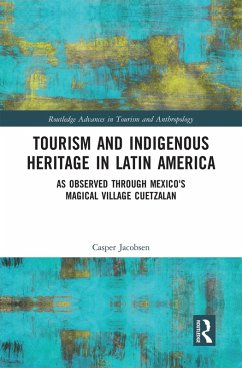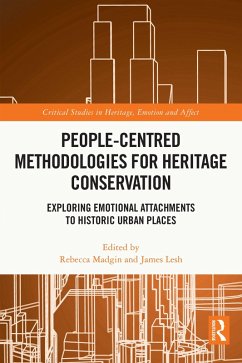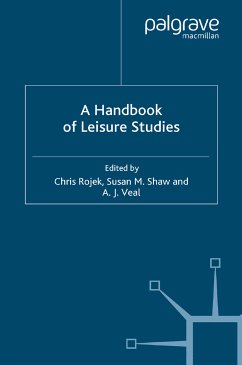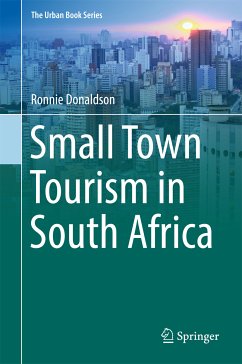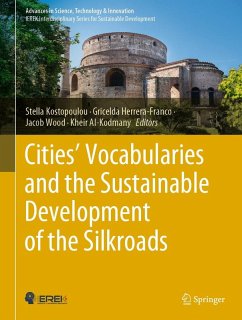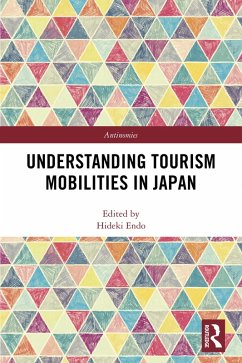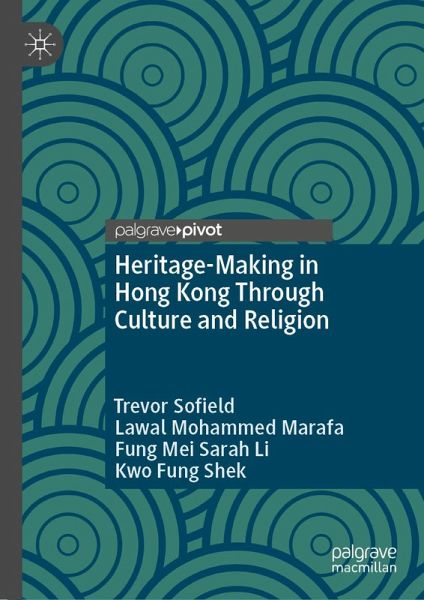
Heritage-Making in Hong Kong Through Culture and Religion (eBook, PDF)
Versandkostenfrei!
Sofort per Download lieferbar
32,95 €
inkl. MwSt.
Weitere Ausgaben:

PAYBACK Punkte
16 °P sammeln!
This book centres on religious heritage-making where religion as a rich and diverse manifestation of culture and community empowerment lead to the transformation of place. Fusing heritage and religion in the novel multidisciplinary concept 'heri-ligion', the authors illuminate the dynamics of change inherent in religious-oriented heritage-making. Grounded in empirical evidence, this rich concept integrates religious tourism, heritage tourism, and community-based empowerment for sustainable development.Applying this unique concept to the once abandoned Hakka village of Yim Tin Tsai, the authors...
This book centres on religious heritage-making where religion as a rich and diverse manifestation of culture and community empowerment lead to the transformation of place. Fusing heritage and religion in the novel multidisciplinary concept 'heri-ligion', the authors illuminate the dynamics of change inherent in religious-oriented heritage-making. Grounded in empirical evidence, this rich concept integrates religious tourism, heritage tourism, and community-based empowerment for sustainable development.
Applying this unique concept to the once abandoned Hakka village of Yim Tin Tsai, the authors analyse the evolving paths of the island from its Hakka origins to a Christian pilgrimage site, and more recently, to a UNESCO cultural heritage site and thriving tourist destination. The authors foreground the important role of the scattered community as a key agent of change in facilitating a sustainable environment of Hong Kong's only salt-producing place today. A dynamic example of community development and empowerment founded upon religious, cultural, industrial and natural heritage, this book uniquely contributes to tourism and heritage studies, human geography, cultural sociology, Hakka studies, Asian studies, and anthropology of religion.
Applying this unique concept to the once abandoned Hakka village of Yim Tin Tsai, the authors analyse the evolving paths of the island from its Hakka origins to a Christian pilgrimage site, and more recently, to a UNESCO cultural heritage site and thriving tourist destination. The authors foreground the important role of the scattered community as a key agent of change in facilitating a sustainable environment of Hong Kong's only salt-producing place today. A dynamic example of community development and empowerment founded upon religious, cultural, industrial and natural heritage, this book uniquely contributes to tourism and heritage studies, human geography, cultural sociology, Hakka studies, Asian studies, and anthropology of religion.
Dieser Download kann aus rechtlichen Gründen nur mit Rechnungsadresse in A, B, BG, CY, CZ, D, DK, EW, E, FIN, F, GR, HR, H, IRL, I, LT, L, LR, M, NL, PL, P, R, S, SLO, SK ausgeliefert werden.



